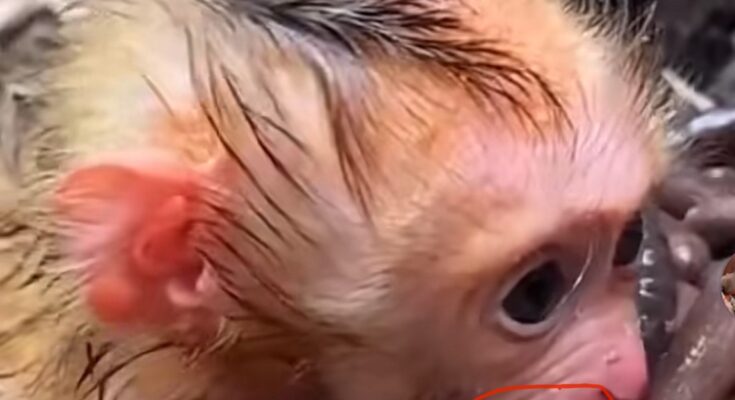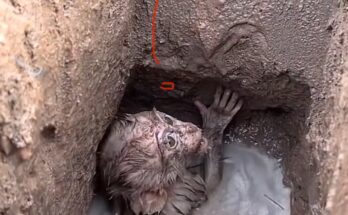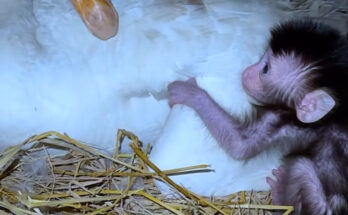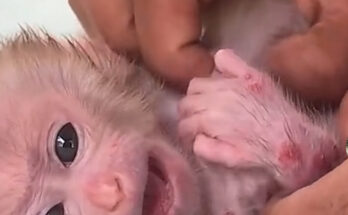A Small Monkey’s Cry: The Heartbreaking Tale of a Lost Mother
In the heart of a lush tropical forest, a young monkey clings to the branch of a fig tree, her wide eyes reflecting confusion and fear. Just hours ago, she had been nestled safely in her mother’s arms, comforted by warmth and familiarity. Now, she sits alone, her mother gone—caught in the cruel grip of a poacher’s trap.
This is not a rare story. Across many rainforests in Asia and Africa, scenes like this unfold daily. Poachers set snares and traps for bushmeat, illegal pet trade, or traditional medicine. But behind each trap lies a story of pain, separation, and irreversible loss. The victims are not just the animals caught, but also the little ones left behind.
The young monkey, barely a few months old, cannot understand why her mother no longer answers her cries. Her world, once filled with playful chatter and rustling leaves, now echoes with silence. Without her mother’s protection, her chances of survival are slim. She doesn’t yet know how to find food, avoid predators, or navigate the forest’s dangers. In nature, a baby monkey depends on its mother not only for nourishment but for every lesson of life.
Wildlife rescuers often find such orphans wandering aimlessly near poachers’ traps. If lucky, they are rescued, rehabilitated, and eventually released back into protected sanctuaries. But for many, help comes too late. The emotional trauma and physical weakness take their toll long before humans arrive.
Behind the tragedy of this small monkey lies a much bigger issue—the growing threat of poaching and habitat destruction. Forests are shrinking, and with them, the homes of countless creatures. As humans push deeper into the wild for timber, agriculture, or illegal hunting, innocent lives are caught in the crossfire. The suffering of this baby monkey is a reflection of a global problem that demands urgent attention.
Yet, there is hope. Around the world, conservation groups are working tirelessly to stop illegal wildlife trade and protect vulnerable species. Sanctuaries care for orphans like this little monkey, giving them a second chance at life. Local communities are being educated about the importance of coexistence and the devastating impact of poaching. Governments are enforcing stricter wildlife protection laws, and global awareness is slowly growing.
The story of this small monkey may have begun in heartbreak, but it can end in change—if we choose to act. Every time we support ethical wildlife tourism, donate to rescue organizations, or simply spread awareness, we help ensure that fewer young animals face such loss.
Somewhere in the dense forest, the orphaned monkey still calls out, waiting for an answer that will never come. Her cry is not just one of grief—it is a plea for humanity to listen, to care, and to protect what remains of our fragile natural world.



